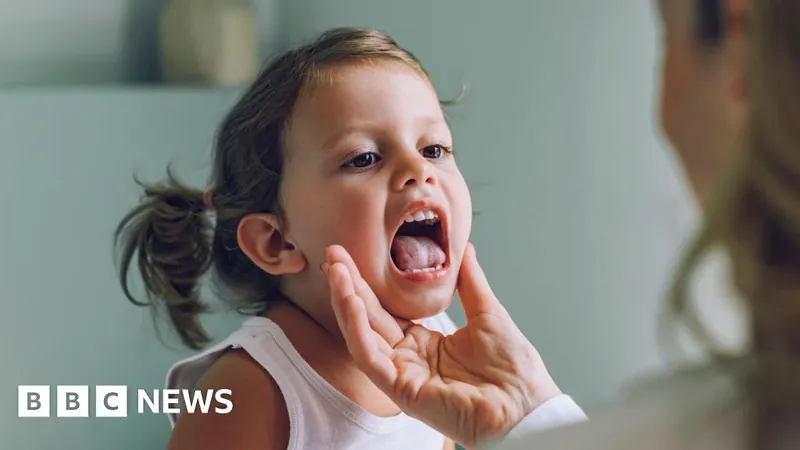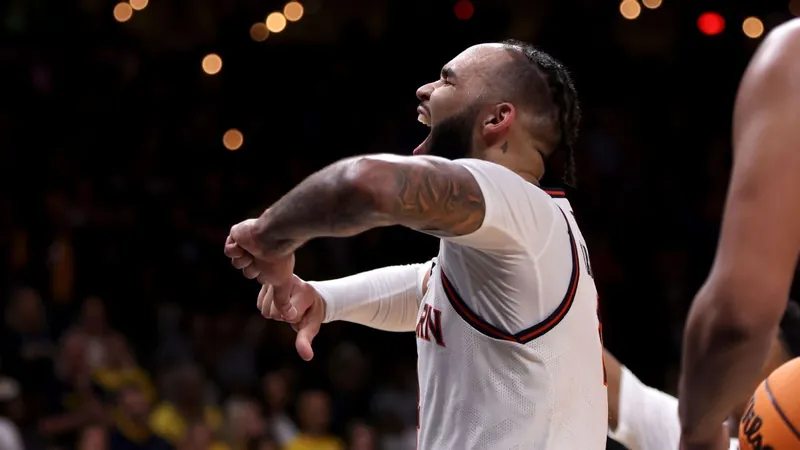
Alarming Decline in Child Surgeries for Swallowed Objects: What You Need to Know!
2025-03-28
Author: Yan
Introduction
In an unexpected twist, the shift towards cashless transactions is proving to be a game-changer for child safety, with fewer youngsters requiring surgical procedures for swallowing everyday objects. Surgeons in England have reported a significant decrease in incidents where children have ingested foreign objects like coins, thanks in part to societal changes in payment methods.
Study Findings
A study by Ear, Nose, and Throat (ENT) experts examined hospital records from the turn of the millennium up to 2022. The findings revealed a remarkable decline of nearly 700 cases of foreign object removal among children, indicating an almost 29% drop in such procedures overall—from 2,405 in 2012 to 1,716 in 2022.
Historical Context of Swallowed Objects
Historically, coins constituted over three-quarters of objects swallowed by children under six years old—the researchers noted this trend has radically shifted. The rise of cashless payments, with the UK Payments Markets Survey showing cards overtook cash in 2012, aligns perfectly with the timeline for this decrease in surgical cases.
Other Contributing Factors
However, it’s not only the transition to digital payments that has contributed to this decline. Other factors include improved child-proof packaging and widespread safety campaigns aimed at educating parents and caregivers about the dangers of small objects.
Emerging Threats
While the likelihood of children swallowing coins has dropped, ENT specialists are drawing attention to new hazards, such as button batteries and magnets, which have emerged as new threats for small children. These items can lead to severe complications within hours and require prompt medical intervention, highlighting the ongoing need for vigilance.
Statistics Overview
According to the statistics from 2012 to 2022, cases of swallowed objects decreased from 708 to 513, nasal retrievals fell from 1,565 to 1,081, and respiratory-tract procedures also slightly dropped.
Expert Commentary
Mr. Ram Moorthy, an ENT surgeon and member of the Royal College of Surgeons of England, commented on the study, stating, 'It is encouraging that fewer children are swallowing coins. This study shows how advancements in technology can enhance child safety in ways we may not have anticipated—but we must remain cautious about other potential dangers.'
Conclusion
As the debate continues about how best to keep our children safe, it remains crucial for parents to monitor their environment closely and ensure hazardous items, especially the shiny ones that children might see as toys, are kept out of reach. Stay informed, vigilant, and proactive—your child's safety could depend on it!





 Brasil (PT)
Brasil (PT)
 Canada (EN)
Canada (EN)
 Chile (ES)
Chile (ES)
 Česko (CS)
Česko (CS)
 대한민국 (KO)
대한민국 (KO)
 España (ES)
España (ES)
 France (FR)
France (FR)
 Hong Kong (EN)
Hong Kong (EN)
 Italia (IT)
Italia (IT)
 日本 (JA)
日本 (JA)
 Magyarország (HU)
Magyarország (HU)
 Norge (NO)
Norge (NO)
 Polska (PL)
Polska (PL)
 Schweiz (DE)
Schweiz (DE)
 Singapore (EN)
Singapore (EN)
 Sverige (SV)
Sverige (SV)
 Suomi (FI)
Suomi (FI)
 Türkiye (TR)
Türkiye (TR)
 الإمارات العربية المتحدة (AR)
الإمارات العربية المتحدة (AR)